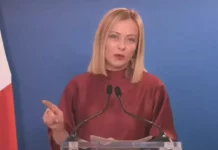 ISLAMABAD: Pakistan Premier Raja Pervez Ashraf today got a temporary reprieve as the Supreme Court extended till August 8 the deadline for him to approach Swiss authorities to revive graft cases against President Asif Ali Zardari, a case that had cost his predecessor his job.
ISLAMABAD: Pakistan Premier Raja Pervez Ashraf today got a temporary reprieve as the Supreme Court extended till August 8 the deadline for him to approach Swiss authorities to revive graft cases against President Asif Ali Zardari, a case that had cost his predecessor his job.
The court had earlier directed the Premier to comply with its directive to reopen the corruption cases against the President by today.
During today’s hearing, Attorney General Irfan Qadir requested that the case be put off till after Eid-ul-Fitr but a five-judge bench headed by Justice Asif Saeed Khan Khosa rejected his plea and adjourned the matter for two weeks.
Qadir also objected to Khosa’s presence in the bench, claiming that he was prejudiced. He asked Khosa to recuse himself from the case but the bench rejected this request too. Khosa said he would immediately quit the bench if he had any prejudice.
The judges will not do anything that can harm the country or derail the democratic system, he said. The judges stand for democracy and want it to be strengthened, he said. “How can you level charges of prejudice against me?” Khosa asked.
Khosa further said the judges respected the President as much as anyone else.
But the Attorney General said he was concerned at the apex court’s order of July 12 to the Prime Minister to revive the graft cases and to file a compliance report to the court.
The Attorney General further said the government intends to file petition seeking a review of the court’s order of July 12.
Khosa said the government could file an appeal by August 8.
On July 12, the apex court had directed Prime Minister Ashraf to comply with its order to revive the corruption cases against Zardari by July 25.
It had warned that if the Premier failed to act, the court might “initiate any appropriate action under the Constitution and the law.”
The same case had cost Ashraf’s predecessor, Yousuf Raza Gilani, his job. Gilani was convicted of contempt in April after he refused to act on the apex court’s orders to reopen the graft cases. A bench headed by Chief Justice Iftikhar Chaudhry subsequently disqualified Gilani for five years.
The court has been pressuring the government to act against the President since December 2009, when it annulled a graft amnesty issued by former military ruler Pervez Musharraf that benefited Zardari and over 8,000 others.
The ruling Pakistan People’s Party and some legal experts have accused the apex court of bias for focusing only on the cases against Zardari.
The government has maintained that it cannot ask the Swiss authorities to act against the President as he enjoys immunity within Pakistan and abroad.
During today’s proceedings, the Attorney General urged the court to avoid any clash with the government for the sake of the country’s progress. Responding to this, Justice Khosa said the apex court does not want to remove anyone from their positions.
The bench also tried to dispel the impression of a tussle between the government and the judiciary.
Yesterday, the Supreme Court had rejected the government’s request to review its directive to the Premier to reopen the graft cases against Zardari. In a written reply submitted to the court Registrar’s office, the government said the federal cabinet has made no decision to approach Swiss authorities to revive the cases.
The government said the Premier follows the decisions of the Cabinet, which has so far not advised him to write a letter to the Swiss authorities.
The government further said the option of initiating contempt proceedings against the Premier for not acting on the court’s order had ended with the passage of the new Contempt of Court Act.
The new law protects top government functionaries from contempt for their executive actions. -PTI





